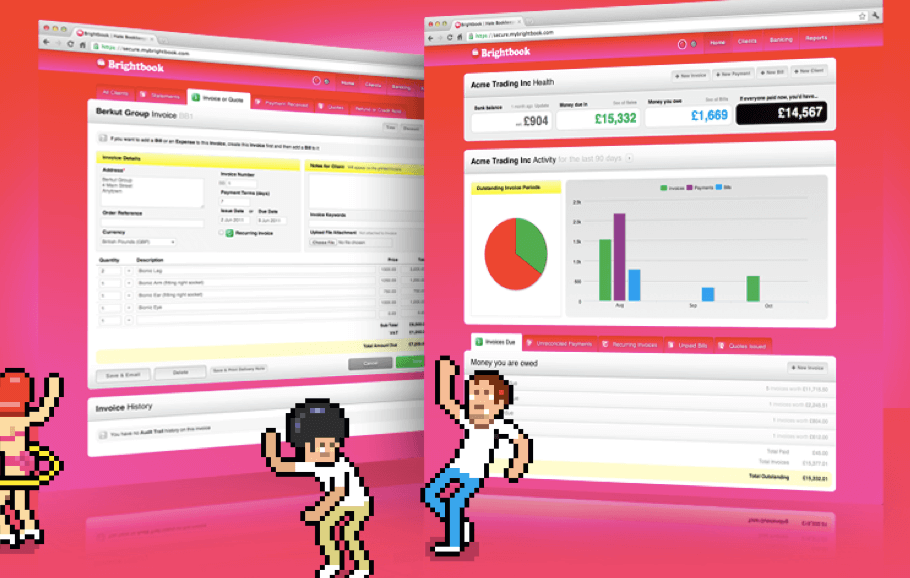There comes a time in most people’s lives when the work-life balance tips in favour of lifestyle – this is typically when freelancing enters the chat. There are several benefits to freelancing that make it an attractive career choice for many individuals.
Here’s a quick reminder of the most brilliant benefits of freelancing:
- Freedom to set your own hours
- Flexibility to adapt your schedule as necessary
- Location independence: work from home, work from cafes, work from anywhere
- You are your own boss
- Choice of work offers passion projects and opportunities to upskill
- Choice of clients offers job satisfaction
- Earning potential as you set your own rates and hours
- Creativity and the opportunity to be innovative and think outside the box
- A sense of accomplishment as you are directly responsible for your success
- Work-Life balance because life is meant to be lived and not just funded (although funding is mandatory)
Freelancing On The Rise in 2024
The freelance revolution is experiencing significant growth, with predictions that freelancers will make up half of the workforce within the next five years.
Australia ranks 4th among the leading freelance countries based on revenue growth, behind the Philippines, India and Japan.
This trend can be attributed to several factors. Advancements in technology have made it easier for people to work remotely and access freelance opportunities globally. Additionally, companies are increasingly recognising the benefits of hiring freelancers, such as flexibility, cost-effectiveness, and access to specialised skills.
Challenges Freelancers Face in the Future
Not every day is freelance paradise and the cost of living crisis that most Aussies are experiencing as we head into Christmas is crippling. So in an effort to keep the conversation balanced, let’s look at the most common challenges faced by self-employed individuals and freelancers as we head into 2024.
Financial Stability
Financial stability can be a challenge for freelancers due to factors like irregular cash flow and the need to budget effectively. Unlike traditional employment, freelancers often experience fluctuating income as projects and clients vary. This unpredictability can make it difficult to plan for expenses, save for the future, and maintain a stable financial foundation. Successful freelancers must employ strategies to manage their cash flow and budget wisely to ensure long-term financial stability.
Client Acquisition
Client acquisition is a common challenge for freelancers as it is crucial for sustaining and growing their business. Finding and attracting new clients or projects requires proactive marketing, networking, and a compelling portfolio. Additionally, competition in the freelance market is high, making it difficult to stand out and secure new clients. Successful freelancers must continuously invest time and effort in building their brand, expanding their network, and showcasing their skills to attract potential clients and maintain a steady flow of work.
Freelance Income Tax Obligations
Tax returns can be ‘taxing’ for freelancers due to the complexities of navigating ATO regulations, managing deductions, and organising financial records. Unlike traditional employees, freelancers are responsible for calculating and paying their own taxes, which can be overwhelming without proper knowledge and guidance. You must start with an ABN (Australian Business Number.)
Tracking and categorising expenses, determining eligible deductions, and maintaining accurate records are essential tasks for freelancers to fulfill their tax obligations accurately and efficiently. Proper tax planning and consulting with tax professionals can help freelancers effectively manage their tax responsibilities.
Work Benefits and Retirement
Addressing the lack of traditional employee benefits like healthcare, vacation time, and retirement plans is vital for freelancers. Without the infrastructure of a company, freelancers are responsible for sourcing and paying for their own benefits. Finding affordable healthcare coverage, managing time off without losing income, and planning for retirement can be complex and costly for freelancers. It requires research, budgeting, and proactive financial planning to ensure your freelance rates can adequately address long-term benefits and retirement needs.
Legal and Contractual Issues
Writing freelance contracts, protecting intellectual property, and resolving disputes can become complex tasks without the guidance of legal professionals. Freelancers often have to navigate diverse legal frameworks, particularly while dealing with international clients. It requires an in-depth understanding of legal terms, effective communication skills, and best practices to ensure compliance with contracts, protect rights, and resolve disputes amicably. Consider working with legal professionals to navigate these issues effectively.
Professional Development
Staying relevant in the freelance market requires continuous professional development, which can be challenging. Freelancers must invest time and resources in upgrading their skills, gaining new knowledge, and adapting to changing market trends. Balancing ongoing self-learning with project commitments can be demanding. Additionally, staying updated with emerging technologies and industry best practices can be a constant struggle. Freelancers must demonstrate a commitment to skill enhancement to remain competitive in the ever-evolving freelance landscape.
Isolation and Networking
Overcoming feelings of isolation can be a significant challenge for freelancers. Working solo without colleagues or a work environment can lead to feelings of loneliness or burnout. Building a professional network can be challenging for some, especially for introverted freelancers. It requires attending events, reaching out to peers, and being proactive with networking initiatives. A lack of community support can cause freelancers to feel disconnected from their peers. Consider registering at our freelance directory, attending industry events, and building genuine connections can help overcome these challenges.
Time Management
Balancing multiple projects, meeting deadlines, and prioritising tasks can be daunting. Without the structure of a traditional office, freelancers must proactively manage their time. Distractions, shifting priorities, and unexpected client requests can further complicate time management. Developing effective strategies such as setting realistic goals, creating schedules, and using time-tracking tools is crucial for freelancers to efficiently manage their workload and meet client expectations.
Freelancer Work-Life Balance
We’ve come full circle.
A work-life balance is considered one of the most appealing aspects of freelance work, however, juggling work responsibilities with personal life demands can be a significant challenge for freelancers. The freedom and flexibility of freelancing can sometimes lead to working long hours, sacrificing personal time, and experiencing burnout.
Setting boundaries with work commitments and personal obligations becomes challenging with increased workloads. Additionally, freelancers may find it challenging to unplug from work during personal time, leading to reduced effectiveness and quality of work. Finding work-life balance requires self-discipline, effective scheduling, and setting realistic expectations, ensuring freelancers avoid burnout and maintain overall wellbeing.
The Freelance Mindset
The rise of freelancing comes from a shift in physical workplace locations, however, to sustain life as a freelancer also requires a mental shift too. It is vital to consider the pros and cons of freelancing to understand if this lifestyle is for you.
Are You Ready to Be Your Own Boss? Answer this question with our FREE eBook, The Freelance Mindset.






